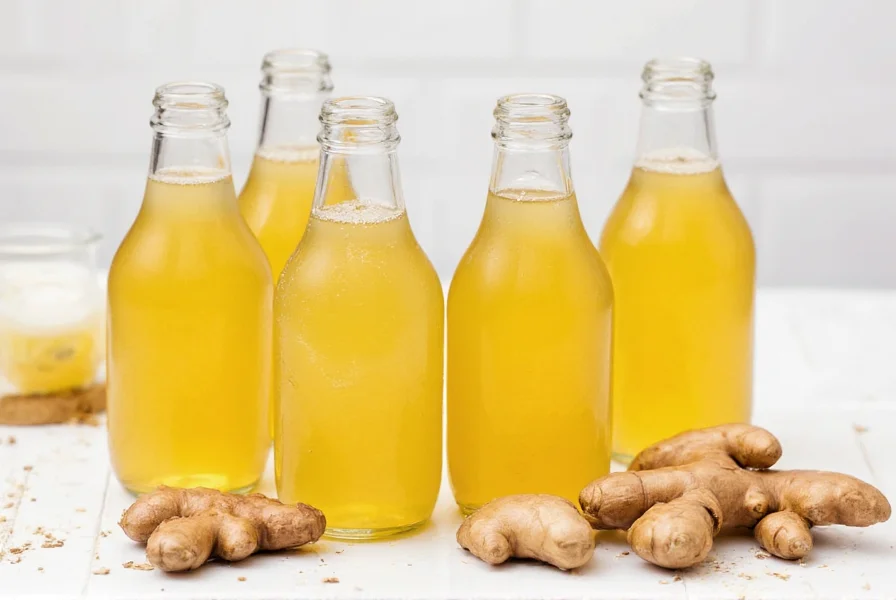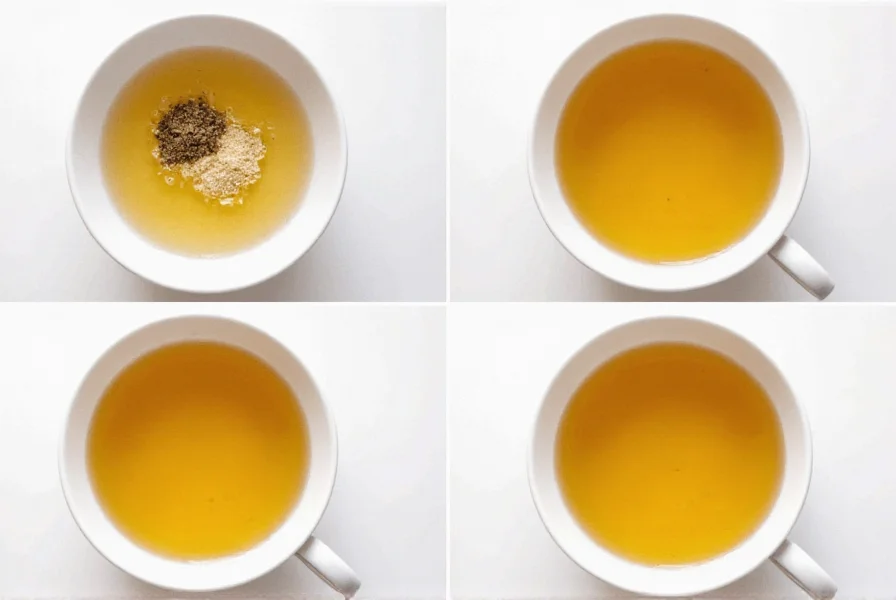When you're battling a sore throat, reaching for ginger ale might seem like a natural remedy. However, the reality is more complicated than popular belief suggests. While ginger itself contains compounds with potential anti-inflammatory and antimicrobial properties, the ginger ale sitting in your refrigerator likely won't deliver meaningful relief for your sore throat.
The Science Behind Ginger and Sore Throats
Ginger root (Zingiber officinale) contains bioactive compounds like gingerols and shogaols that have demonstrated anti-inflammatory effects in scientific studies. Research published in the Journal of Ethnopharmacology indicates these compounds may help reduce inflammation in mucous membranes, which could theoretically soothe irritated throat tissue.
However, the critical distinction lies in the difference between raw ginger and commercial ginger ale. Most mainstream ginger ale brands contain less than 0.5% actual ginger extract, with the distinctive flavor coming primarily from artificial flavorings and high-fructose corn syrup. The sugar content in these beverages can actually worsen throat irritation by promoting bacterial growth and reducing immune function.

Ginger Ale vs. Effective Ginger Remedies
Understanding whether ginger ale for throat pain relief works requires examining what makes ginger potentially beneficial:
| Remedy Type | Ginger Content | Sugar Content | Potential Sore Throat Benefit |
|---|---|---|---|
| Commercial Ginger Ale | <0.5% ginger extract | High (20-30g per 12oz) | Minimal |
| Fresh Ginger Tea | 100% pure ginger | None (unless added) | Significant |
| Ginger Supplements | Standardized extracts | Low | Moderate to high |
The table clearly shows why homemade ginger tea vs ginger ale for sore throat represents a significant difference in potential effectiveness. To create a therapeutic ginger preparation, you need substantial amounts of fresh ginger steeped in hot water for at least 10 minutes to extract the beneficial compounds.
When Ginger Might Actually Help Your Sore Throat
While commercial ginger ale offers limited benefits, ginger itself can contribute to sore throat relief in specific circumstances:
- Hydration factor: The warm liquid can soothe throat tissues regardless of ginger content
- Placebo effect: Familiar remedies can provide psychological comfort during illness
- Alternative to irritating beverages: Better than acidic juices or carbonated drinks that might worsen irritation
For genuine therapeutic benefits, prepare fresh ginger tea by slicing 1-2 inches of ginger root, boiling in 2 cups of water for 10-15 minutes, then straining. Adding honey (which has its own soothing properties) can enhance the remedy's effectiveness. This approach delivers actual ginger compounds without the excessive sugar found in commercial ginger ale benefits for cold symptoms.

Better Alternatives for Sore Throat Relief
If you're searching for best drinks for sore throat, consider these evidence-based options:
- Warm salt water gargle: 1/4 to 1/2 teaspoon salt dissolved in 8 ounces of warm water
- Honey and lemon tea: Honey has antimicrobial properties while lemon provides vitamin C
- Chamomile tea: Contains anti-inflammatory compounds that may reduce throat swelling
- Broth-based soups: Provide hydration and nutrients while soothing irritated tissues
Remember that while home remedies can provide symptomatic relief, they don't treat underlying infections. If your sore throat persists beyond 48-72 hours, worsens, or is accompanied by fever over 101°F (38.3°C), consult a healthcare professional to rule out strep throat or other conditions requiring medical treatment.
When to Seek Medical Attention
Most sore throats resolve within a week with home care, but certain symptoms warrant medical evaluation:
- Difficulty breathing or swallowing
- Prolonged fever above 101°F (38.3°C)
- White patches on throat or tonsils
- Symptoms lasting longer than 7 days
- Hoarseness lasting more than 2 weeks
Self-treating with ineffective remedies like standard ginger ale could delay appropriate medical care for conditions requiring antibiotics or other treatments.
Frequently Asked Questions
Does ginger ale actually help with sore throats?
Most commercial ginger ale provides minimal sore throat relief because it contains very little actual ginger and high sugar content. While the warm liquid might offer temporary comfort through hydration, the processed ginger flavoring lacks the anti-inflammatory compounds found in fresh ginger that could potentially soothe throat tissue.
What's the difference between ginger ale and ginger tea for sore throats?
Ginger tea made from fresh ginger root contains significantly higher concentrations of therapeutic compounds like gingerols compared to commercial ginger ale. Most store-bought ginger ales use artificial flavorings with minimal actual ginger extract (often less than 0.5%) and contain high sugar levels that can potentially worsen throat irritation rather than alleviate it.
Can ginger ale make a sore throat worse?
Yes, the high sugar content in most commercial ginger ales can potentially worsen sore throats. Sugar promotes bacterial growth and may reduce immune function, counteracting any minimal soothing effects from the small amount of ginger flavoring. Carbonation in ginger ale can also irritate sensitive throat tissues in some individuals.
What's the best way to use ginger for sore throat relief?
For effective sore throat relief, prepare fresh ginger tea by slicing 1-2 inches of ginger root and boiling in 2 cups of water for 10-15 minutes. Strain the liquid and optionally add honey (which has additional soothing properties) and lemon. This delivers actual therapeutic compounds without the excessive sugar found in commercial ginger products.
Are there any scientific studies supporting ginger for sore throats?
Research published in the Journal of Ethnopharmacology indicates ginger's bioactive compounds (gingerols and shogaols) have anti-inflammatory effects that may help reduce inflammation in mucous membranes. However, these studies typically use concentrated ginger extracts, not the minimal amounts found in commercial ginger ale. Most evidence for ginger's throat-soothing properties comes from traditional medicine practices rather than extensive clinical trials.










 浙公网安备
33010002000092号
浙公网安备
33010002000092号 浙B2-20120091-4
浙B2-20120091-4